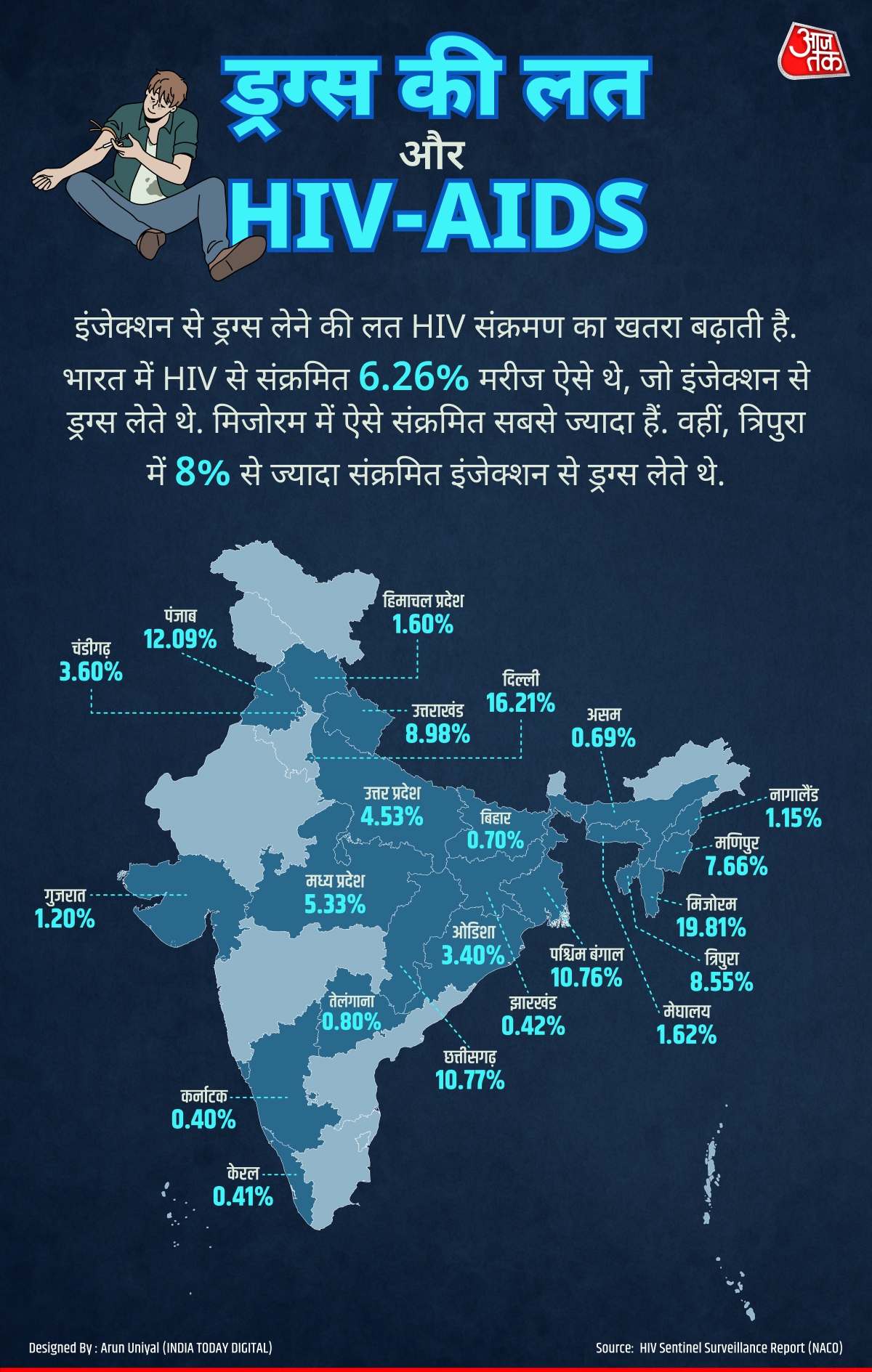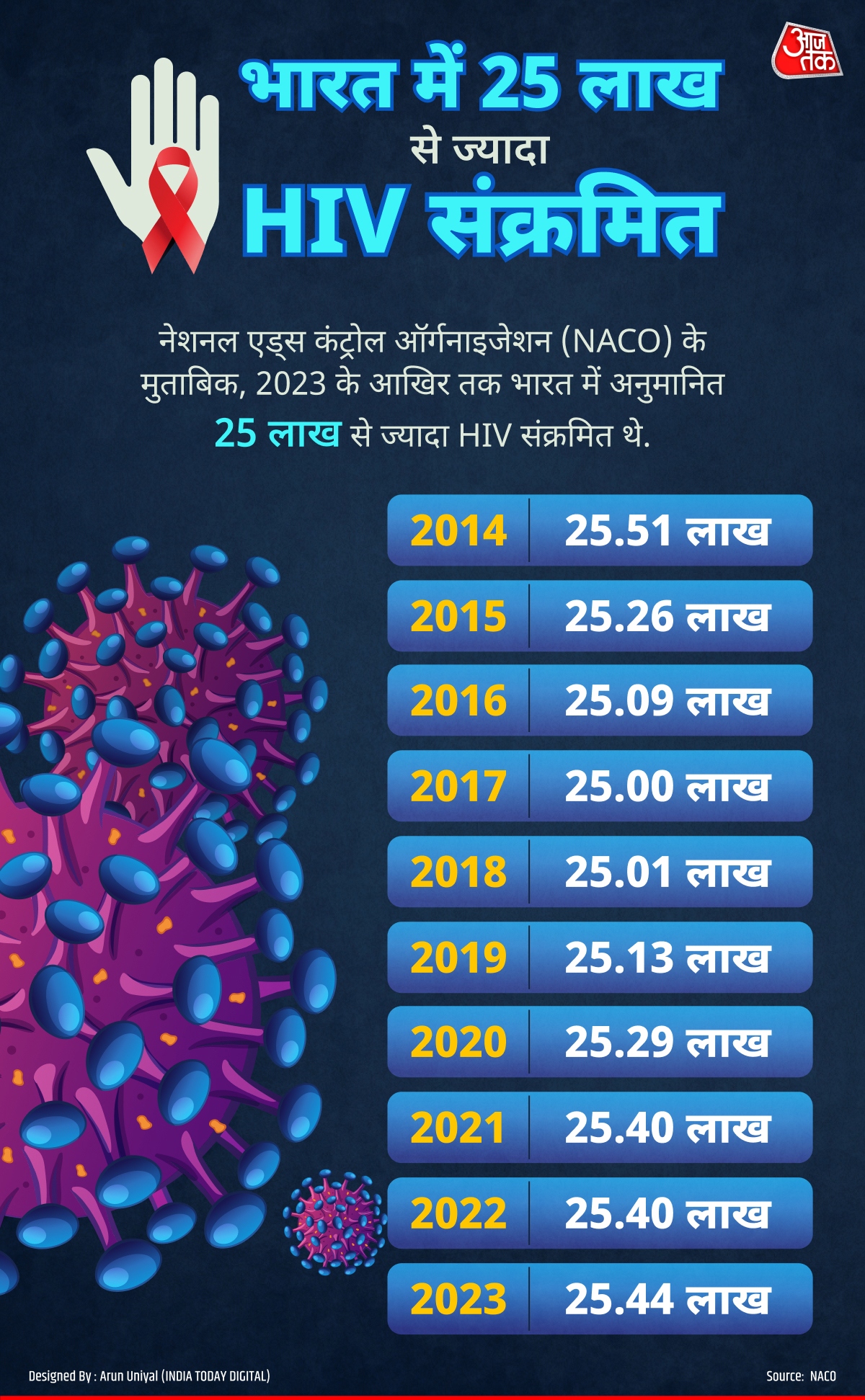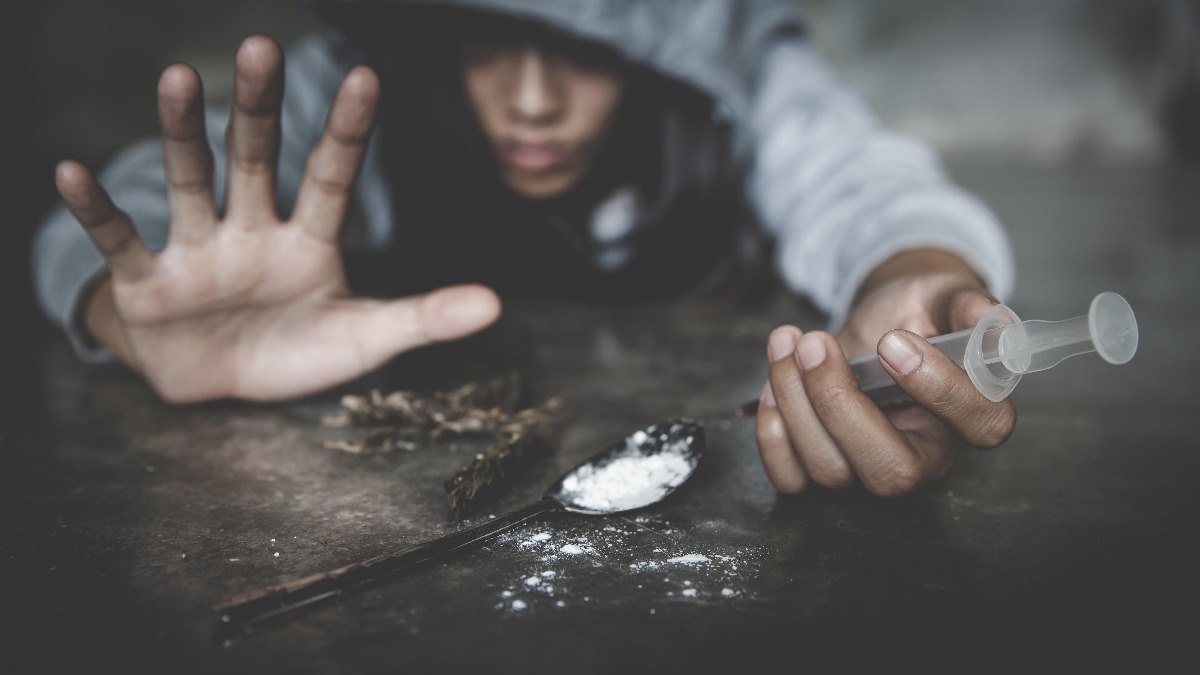In Tripura, the rising cases of HIV-AIDS have shaken the community, revealing that over 800 students have tested positive for HIV. Tragically, some have already lost their lives.
Officials from the Tripura AIDS Control Society disclosed that recently, 828 students have been identified as HIV positive, with 47 succumbing to AIDS. They note that these figures represent a period from April 2007 to May 2024. Daily, about five to seven new patients are diagnosed in Tripura.
An official explained that if a student uses an injection needle previously used by an HIV infected individual, the virus easily transmits. Drug abuse through injections is the primary reason behind the HIV spread among students. The cases have been identified across 220 schools and 24 colleges and universities in Tripura.
Subhrajit Bhattacharjee, the Joint Director of the AIDS Control Society, indicated that the majority of infected students belong to affluent families with parents holding government positions. Often, parents only realize their child's addiction when it's too late.
As of May 2024, anti-retroviral therapy centers recorded a total of 8,729 cases, with HIV-positive individuals numbering 5,674, including 4,570 men, 1,103 women, and one transgender person.
Drug Injection Habits Lead to HIV Rise
The most significant risk for HIV spread is unprotected sexual relations. In India, the initial HIV case was identified among sex workers in 1986. Injection drug use is also a known cause of HIV spread.
A UN report estimates that globally, about 12.5 million individuals inject drugs. Injection drug use has been accelerating HIV infections in various parts of the world. Data suggests that individuals who inject drugs have a 22-fold increased risk of contracting HIV.
Reports by the National AIDS Control Organisation (NACO) in 2017 stated that over 6% of all HIV infected individuals in India acquired the virus through injection drug use, and the numbers have likely increased.
In Mizoram, approximately 20% of HIV cases were attributed to injection drug users, with Delhi following at over 16%.

Source: aajtak
The study involved a test for HIV among 2,697 injection drug users, with 21.19% testing positive. This highlights the alarming spread of HIV due to injection drug use.
Nearly 99% of participants admitted to using heroin, with 21.3% of them being HIV positive. More than 54% confessed to sharing needles, leading to more than 24% of them contracting HIV.
The Peril of HIV Explained
HIV, or the Human Immunodeficiency Virus, attacks the immune system, weakening it to a point where it cannot fight off other infections or diseases.
Without timely treatment, HIV can progress to AIDS. No definitive cure is available, but medications can suppress viral load.
According to WHO, HIV and AIDS have claimed over 40 million lives worldwide. As of the end of 2022, roughly 40 million people were grappling with HIV-AIDS, with over 600,000 deaths in that year alone.
By 2023 in India, NACO indicated over 2.5 million people were living with HIV, with 68,451 new cases and 35,866 deaths reported the previous year.

Source: aajtak
From HIV to AIDS: Understanding the Spread
Unsafe sexual practices and exposure to infected blood significantly increase the risk of HIV. Prompt treatment is critical. The CDC states that flu-like symptoms such as fever, sore throat, and fatigue can appear in infected individuals, eventually progressing to AIDS. Weight loss, recurrent fever, night sweats, and overall weakness are common in AIDS patients. Ordinarily, it takes three stages for HIV to develop into AIDS.
- First Stage:
HIV infection spreads in the bloodstream, and during this acute phase, individuals are highly contagious.
- Second Stage:
Often referred to as 'clinical latency,' the virus remains active without showing symptoms. This stage can last over a decade without the need for medication, despite the ongoing risk of transmission.
- Third Stage:
If HIV isn't treated early, it can advance to the most severe stage, AIDS. Without treatment, individuals at this stage may not live beyond three years.
Prevention is Key
The spread of HIV can be prevented by practicing safe sex and avoiding shared needles. Immediate antiretroviral therapy upon diagnosis is essential to combat the virus's weakening effects on the body. While there is no cure for HIV, management with medication is possible to lead an extended, quality life.




